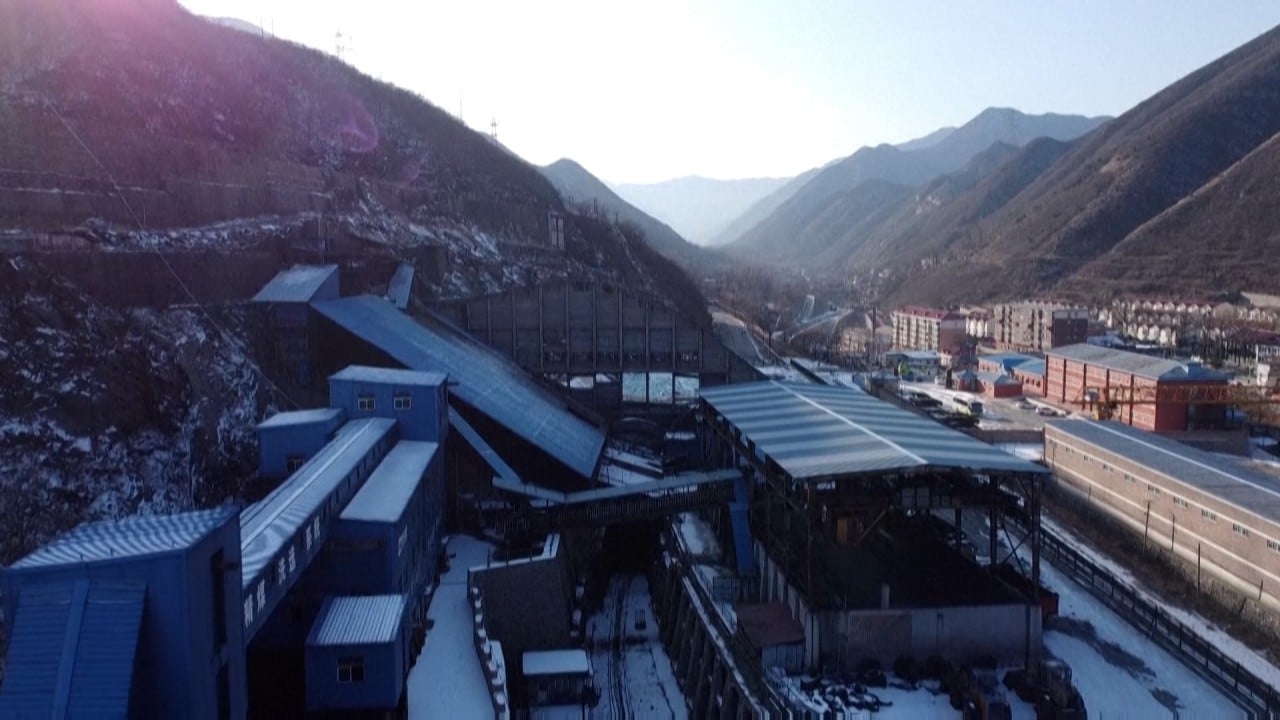
China-Australia relations: allowing coal ships to dock on humanitarian grounds not seen as softening of import ban
- China unofficially stopped importing Australian coal – both thermal coal used for electricity generation and coking coal – in October amid escalating tensions
- Eight vessels have been given permission to dock at three northern ports in China on humanitarian grounds with some ships having been at sea since June
China will move to allow eight vessels carrying Australian coal to dock on humanitarian grounds, although doing so does not signal a lifting of its unofficial ban on imports of the commodity which began in October, according to commodities analysts.
While the vessels will be allowed to offload their shipments – mostly coking coal used in steel production – there is also no indication yet that the cargoes have received clearance from Chinese customs to enter the country.
None of the vessels have obtained customs clearance, so the unloading is likely to be for humanitarian reasons rather than a sign that China is about to ease its ban on Australian coal import
“None of the vessels have obtained customs clearance, so the unloading is likely to be for humanitarian reasons rather than a sign that China is about to ease its ban on Australian coal imports,” said Argus Media ferrous markets manager Chris Newman, echoing a view also held by Chinese coal analyst SX Coal
“These vessels arrived at the ports between June and July [2020] so their crews are among the worst off on Capesizes and Panamaxes [sized ships] holding roughly 3 million tonnes of Australian coking coal offshore.”
Six vessels have been approved to discharge their cargoes at the ports of Jingtang and Caofeidian in the northern Chinese province of Hebei, while two have been allowed to enter Bayuquan port in Liaoning province, also in the north, Newman added.
He also said a total of 850,000 tonnes of Australian coking coal was expected to be unloaded but might not necessarily clear customs.
Three vessels carrying around 249,000 tonnes of Australian coal were also seen docking earlier in the week at Jingtang and Xiasha ports, Kpler dry bulk analyst Monica Xiaomo Zhu added.
China imported 304 million tonnes of coal in 2020, up 4 million tonnes from a year earlier.
In 2019, around 57 per cent of China’s thermal coal imports and 40 per cent of its coking coal came from Australia, while last year, imports of Australian thermal coal were likely about the same scale, but coking coal imports probably rose to 50 per cent, according to analysts.
The ban, though, has still resulted in an increasing shortage of high quality Australian coking coal needed for steel smelting, forcing Chinese mills to look for alternatives.
Commodities analyst Kpler said that China had only imported 100,000 tonnes of Australian coking coal in January, much lower than the 3.9 million tonnes imported in the same month a year ago.
China is less reliant on Australian thermal coal, although like coking coal, thermal coal imports have fallen.
The India-flagged Jag Anand, which caught media attention last year after stranded crew complained they had run short of water and medicine after being at sea since June, changed crew in Japan and also has approval to dock but it has yet to unload its shipment.
S&P Global Platts analyst Jeffery Lu agreed there is no indication the coal shipments would be cleared by customs, but said there could be a chance some vessels might be diverted to dock in Japan rather than Chinese ports to discharge crew.

02:06
Chinese cash funds African coal plants despite environmental concerns
Chinese authorities have not made an official announcement and did not respond to requests for comment.
As the stand-off lengthened, humanitarian concerns for the around 1,200 stranded mariners on board the waiting vessels deepened.
Some shipowners and charterers are negotiating with cargo owners to divert vessels to foreign ports to relieve the exhausted workers.
While the unofficial import ban remained in force, prices of coking coal showed no signs of easing, Argus Media added.
The difference between Chinese coal prices and imported Australian coal prices has widened significantly to an eye-watering US$100 a tonne recently. Local prices rose due to scarcity of local supply, while an abundance of Australian coal made prices cheaper.
“That has come down to around US$60 a tonne, not because of any change in China’s policy, but because the gap was too wide for the market to ignore,” Newman said.
In the interim, the ban has been squeezing Chinese steel mill profit margins, with some steel products being sold at a loss this month, according to analysts, possibly putting more pressure on China to reconsider its ban on Australian coal.
Additional reporting by Bloomberg

